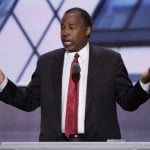Some federal agencies are cautious about talking to the media — so much so that they make journalists jump through hoops to get answers to even simple questions.
I experienced this firsthand while working on a project about access to health services on northern reserves, and the experiences of First Nations people who have to leave their communities to get even simple health services.
First Nations treaties with the federal government state that Ottawa must provide them with health care.
While many health services are made available to First Nations people under provincial programs, any services that go beyond that are covered by the federally run Non-insured Health Benefits Program.
First Nations people on remote reserve communities, where health services are scarce, rely heavily on the federal program. Often people must leave their communities to receive even simple health services, since nursing stations typically have limited equipment and medication on hand — not to mention a lack of trained professionals.
Free to speak with nurses
To learn more about what people go through to access health services, I went to Sachigo Lake First Nation in northwestern Ontario. I had previously lived in the small community of 500 people, and knew many people who lived there, making it a lot easier for me to gather stories.
At the suggestion of a senior producer at CBC, before I flew to the community, I called Health Canada and asked to speak to the nurses at the Isaac Barkman Nursing Station in Sachigo Lake.
I was assured by Health Canada media relations advisor Maryse Durette that I was free to talk to the community nurses, assuming they were willing to speak.
When I arrived in the community in early September, I went to the nursing station as soon as possible to speak to the nurses, confident that I could secure a few interviews. When I arrived, however, the head nurse told me that she knew I was coming and said her employer prohibited her from speaking to me.
The Isaac Barkman Nursing Station serves the small community of Sachigo Lake First Nation in northwestern Ontario. (Stephanie Cram/CBC)
I was later told by Dr. Lisa Letkemann, a physician who works in Sandy Lake First Nation, that Health Canada nurses sign a non-disclosure agreement and therefore can’t speak to the media.
A few days later, I received an email from Durette. She explained that she was unable to find nurses willing to speak to me and stressed that the nursing station was “off limits.”
Workers are muzzled, but the message Health Canada sends to the media is that they aren’t.
Getting the runaround
With the nursing staff off limits, I spent my time in the community talking to as many residents as I could about the troubles they face when flying out of Sachigo Lake for health care.
Near the end of my trip, I was told by the community’s health director — who is employed by the band, and not Health Canada — that there was a senior representative from Health Canada visiting the community who wanted to speak to me.
When I returned to the nursing station, I was immediately told by the senior representative that he could not speak to me.
I was getting the runaround.
The senior official told me that Health Canada restricts their interaction with the media because reporters focus too much attention on negative stories and don’t cover the many positive things nurses and physicians are doing in the North.
But if Health Canada continues to muzzle its workers, it is impossible to cover stories — whether positive or not.
[Source:-CBC NEWS]


